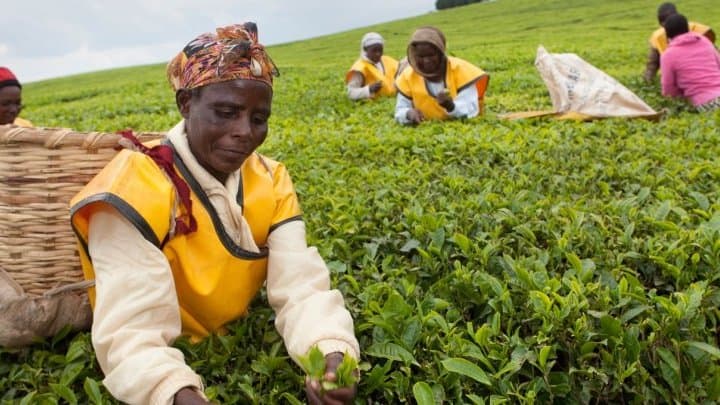We're loading the full news article for you. This includes the article content, images, author information, and related articles.
Former Roots Party presidential running mate Justina Wamae has cautioned that Kenya's long-standing coffee and tea industries are experiencing diminishing returns, raising concerns about the nation's global market competitiveness.

Kenya's vital coffee and tea sectors, pillars of the national economy for a century, are now at a point of diminishing returns, according to former Roots Party presidential running mate Justina Wamae. Speaking on Thursday, October 2, 2025, Wamae stated via her official X account that after 100 years of cultivation, there is little more that can be done to increase financial returns from these traditional crops.
The tea industry, which began commercialization in Kenya in 1924, is indeed celebrating its centenary this year. Tea is Kenya's largest foreign exchange earner, contributing an average of 4% to the Gross Domestic Product (GDP) and employing millions. Similarly, coffee has historically been a significant contributor to Kenya's economy, known for its high quality and unique flavour.
Kenya is a leading global producer and exporter of black tea, with over 60% of its tea produced by smallholder farmers. In 2023, Kenya produced approximately 540,000 metric tonnes of tea, exporting about 95% to international markets, primarily Pakistan, Egypt, and the United Kingdom. Tea exports generated around USD 1.3 billion in revenue in 2023.
Despite these figures, Kenya's tea sector faces intense competition from countries like India, Sri Lanka, and China, which offer a wider variety of teas. The country also struggles with lower average prices per ton compared to its competitors. In 2024, Kenya exported 625,558 tons of tea, earning US$1.4 billion, slightly below China's US$1.41 billion and nearly equal to Sri Lanka's earnings, despite exporting significantly more volume than both. This disparity is highlighted by Sri Lankan tea averaging US$5,793 per ton, Chinese tea US$3,794, and Kenyan tea just US$2,252 per ton.
The coffee industry, while highly valued in specialty markets, has contended with declining production and fluctuating global prices. In 2023, Kenya produced approximately 50,000 metric tonnes of coffee, with over 95% exported to markets such as the United States, Germany, and Belgium.
The Kenyan government has acknowledged the challenges and is implementing measures to boost earnings through large-scale value addition before export. Agriculture and Livestock Development Cabinet Secretary Mithika Linturi noted in August 2025 that foreign nations currently benefit more from Kenyan tea and coffee by processing them before re-exporting. Plans are underway to establish Special Economic Zones (SEZs) at Dongo Kundu in Mombasa for local processing of tea and coffee.
In May 2025, the Ministry of Agriculture announced trade missions to key global markets to strengthen Kenya's international presence and secure new buyers. Additionally, a tax exemption on tea packaging materials was introduced to lower production costs. President William Ruto, on October 1, 2025, commissioned the China-Kenya Commerce Centre in Nairobi, a KSh5 billion facility aimed at boosting exports, particularly after the removal of Chinese tariffs on Kenyan products including tea and coffee.
The diminishing returns highlighted by Wamae pose a significant risk to the livelihoods of millions of Kenyans dependent on these sectors. Challenges include volatile global commodity prices, climate change impacting yields and quality, and an aging workforce in tea farming as younger generations migrate to urban areas. Weak branding and limited value addition also reduce Kenya's earnings in the global market.
The specific timelines for the full implementation of value addition initiatives and the projected impact on farmer incomes remain to be seen. The effectiveness of new trade policies and market diversification efforts in significantly increasing returns also requires ongoing monitoring.
Observe the progress of the Special Economic Zones for local processing and the outcomes of trade missions aimed at securing new markets and better prices. The impact of the China-Kenya Commerce Centre on export volumes and value for coffee and tea will also be crucial.
Discussions around agricultural diversification, sustainable farming practices, and youth engagement in agriculture are closely related to the future of Kenya's coffee and tea sectors.
Keep the conversation in one place—threads here stay linked to the story and in the forums.
Sign in to start a discussion
Start a conversation about this story and keep it linked here.
Other hot threads
E-sports and Gaming Community in Kenya
Active 9 months ago
The Role of Technology in Modern Agriculture (AgriTech)
Active 9 months ago
Popular Recreational Activities Across Counties
Active 9 months ago
Investing in Youth Sports Development Programs
Active 9 months ago